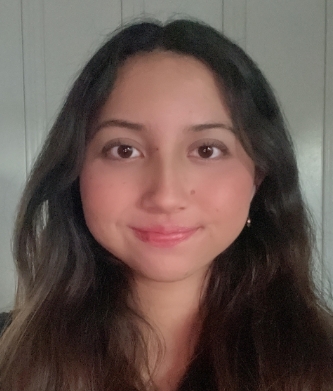
As a 10th grader at Crescenta Valley High School, I’ve had the unique opportunity to have a mentorship role that allows me to guide younger students through robotics and problem-solving. This school year, through my high school’s robotics program, I mentored a group of 5th and 6th graders through the FIRST LEGO League (FLL), a robotics competition with a goal to foster creativity, teamwork, and innovation in young children’s minds.
Mentoring is a part of my school’s robotics program and we’ve taken it on through our partnership with FIRST, a non-profit organization that promotes STEM education. Committing 3 hours a week to mentoring during the first semester has been both challenging and rewarding, as I’ve helped these students complete complex projects and grow their understanding of science and technology, even though having it take up lots of my day.

When I first signed up to be a mentor, I wasn’t entirely sure what to expect. I knew that I loved working with young kids, but my only experience is in babysitting and tutoring. I didn’t realize how much responsibility would come with the role. I quickly learned that mentoring wasn’t just about giving advice or offering guidance; it was about creating an environment where the students could explore, experiment, and learn from their mistakes.
Working with five other high school mentors from my robotics program, we took on different roles to support the team. Some of us focused on the robot game, teaching the students how to design, build, and program their LEGO robots to complete missions on the competition mat. Others, including myself, worked more closely with the Innovation Project, guiding the team through brainstorming sessions as they developed their solutions to this year’s challenge, related to ocean exploration. Our goal was to be facilitators of their creativity rather than doing the work for them. We wanted them to feel ownership over their ideas and solutions.
Learning and Growing with the Team
One of the most rewarding aspects of being a mentor was seeing the students gain confidence in their abilities. At first, many of them were hesitant, unsure how to approach coding the robot or how to solve problems that arose during testing. Also, many were shy, being in a group with other students they have never met before. But as we worked with them week after week, they began to take more initiative, offering ideas and trying out different strategies, making it clear that they were learning not only from us but from each other as well.
Mentoring a group of 5th and 6th graders comes with its challenges. One of the biggest complications I faced was finding ways to break down complex engineering and programming concepts into terms that the younger students could understand. My co-mentors and I had to develop strategies to simplify these ideas while still encouraging the students to think critically and independently.
Another challenge was managing time effectively. With only 3 hours a week to work with the students, we had to be extremely organized in our approach. It was tempting to step in and speed things along when deadlines came our way, but we persevered through it. Instead, we helped the students set small, manageable goals for each session. This not only kept them on track but also taught them the importance of planning and time management—skills that will continue to be valuable as they continue their academic and professional journeys.
At times, communication between us mentors and students could also be tricky. While we were all eager to help, we quickly realized that the students sometimes became overwhelmed and focused less with too much input at once. We learned to step back, give them space to think, and only step in when they truly needed guidance. This approach allowed the students to solve problems on their own, boosting the independent aspect of our sessions.
Overcoming Challenges Together
Despite the challenges, there were many moments of success and achievement throughout the semester. One of the most memorable milestones came when the students successfully programmed their robot to complete its first mission. The excitement and pride on their faces were contagious. It wasn’t a huge accomplishment in the grand scheme of things, but for the team, it was a sign that our hard work was paying off.
As we continued working together, the students made significant progress on their Innovation Project as well. They brainstormed creative ideas, conducted research, and eventually developed a solution that they were excited to present to the judges. Watching them be proud of our project and present their ideas with confidence was one of the highlights of my mentoring experience.
The team’s growth in teamwork was also a major success. Early on, there were moments of frustration and disagreement among the students, but over time, they learned to communicate better and support one another. By the time competition day arrived, they were functioning as a proper team, each member contributing their unique strengths to the project.
Beyond the personal milestones and achievements, it’s clear that FLL and programs like it are helping shape the future of education and innovation. The skills these young students are developing–critical thinking, problem-solving, collaboration–, are not just important for robotics competitions; they are helping them with the experiences they will face when they get older and become mentors like us, and future careers they will pursue. Whether they go on to pursue careers in STEM fields or not, the lessons they learn through FLL will help them with future experiences.
One of the most inspiring aspects of FIRST LEGO League is its emphasis on mentorship. Being a mentor has given me the chance to not only pass on my knowledge but also to learn from the younger students. In many ways, mentoring has deepened my own understanding of the importance of education and community involvement.
FLL also promotes environmental sustainability and technological innovation, which are critical issues in today’s world. By challenging students to think about real-world problems and develop creative solutions, FLL encourages a mindset of innovation and responsibility. It’s incredible to see students as young as 10 engaging with these issues, understanding that they have the power to make a difference.

As I reflect on my experience mentoring the FLL team, I can’t help but feel excited about the future. Not only has this experience deepened my passion for STEM and robotics, but it has also shown me the importance of giving back to the community. I’ve seen firsthand how mentorship can have a lasting impact, not just on the students but on the mentors as well.
Looking ahead, I hope to continue mentoring in the future, both within FLL and in other areas of my life. The connections I’ve made with the students and my fellow mentors have been invaluable, I realize that I want to continue doing this throughout high school. I’ve enjoyed the process of helping the younger students figure out how to build and program robots, and I’d like to keep mentoring future teams in the coming years. I also want to take on more responsibilities as I become more experienced in mentoring. I’ve built some good connections with the students and other mentors, and I plan to stay involved in this as long as I’m at my high school.
As I reflect on my journey with FIRST LEGO League and my school’s robotics team, I see this as an opportunity to develop skills, make connections, and explore the world of robotics in depth. One area where I hope to grow is in learning more advanced programming skills, as FLL has been a great introduction to robotics, but I realize there is a big leap between FLL and high school competitions. The hardware and programming languages we use in high school competitions, like Java or Python, require more complex understanding and precision, unlike FLL, which uses block coding.
Working in high school robotics requires more technical responsibility and specialized knowledge, so I’m planning to get additional training in mechanics and design, possibly from seniors on the team who have experience in these areas. We have some very skilled upperclassmen in our robotics team, and I think learning from them would help me improve my practical aspects of robot design and implementation. It’s exciting to know that high school competitions allow for more customization and creative problem-solving, giving us the freedom to experiment with our robots’ design and test different programming techniques. By gradually taking on more technical tasks, I’ll be able to learn more while actively contributing to our team’s goals and competitions.

I also want to focus on improving our team’s documentation process. In FLL, we taught our students the importance of keeping clear, detailed notes on their progress, from brainstorming ideas to troubleshooting technical issues. This was an eye-opener for me too, as it’s easy to overlook documentation when you’re focused on building or programming. Keeping organized records could help our high school team maintain consistency, especially when we’re experimenting with various designs or programming algorithms, especially at competitions. Detailed documentation would make it easier for us to review what has worked or not in the past and help new members catch up on our project. Eventually, I hope to take on a role where I can ensure our team’s process is smooth and efficient, especially as we prepare for competitions.
Being part of FLL has also shown me the value of outreach and the importance of engaging with the community. As a high school team, we can do more to build partnerships within our local community, perhaps by organizing workshops for elementary or middle school students interested in STEM. This outreach could be a way to inspire future members for our team while strengthening our connections in the area. Such events could also serve as great leadership opportunities, as running workshops requires planning and adaptability. By getting involved in community outreach, I hope to develop my own skills while encouraging younger students to pursue STEM.
The teamwork involved in competitive robotics is another area I want to focus on. In FLL, I witnessed how critical it was for the younger students to work well together to solve problems and achieve their goals. The high school level often demands even closer collaboration as we work on larger, more complex projects. I’m excited about learning to coordinate effectively with my teammates, balancing different strengths and interests. I’m looking forward to understanding each team member’s skill set, so we can distribute tasks more effectively and play to each other’s strengths. Robotics competitions often require us to make adjustments in real-time, and having that level of familiarity and trust could make all the difference.
Lastly, I want to engage more actively in the creative process, from brainstorming to final presentation. Robotics isn’t just about technology, it’s also about creativity and vision. High school competitions often present unique challenges, and I hope to push our team to come up with original ideas, even if they initially seem difficult. By participating more in the brainstorming and design phases, I’ll be able to contribute to the innovation that drives our team’s success.
From building technical skills to building a sense of community and teamwork, I believe every part of this experience will help me grow as both a team member and a mentor. As I move forward, I’m eager to learn from my teammates, and tackle the challenges that come our way on the team. Whether it’s contributing my coding skills, helping organize our meetings, or stepping into new responsibilities, I’m ready to take on a bigger role, mentoring and on the team, and hope to become more active in my community and on my robotics team.
![]() <Student Reporter Amber Thornal>thornalamber@gmail.com
<Student Reporter Amber Thornal>thornalamber@gmail.com
She is a sophomore student at Crescenta Valley High School.






